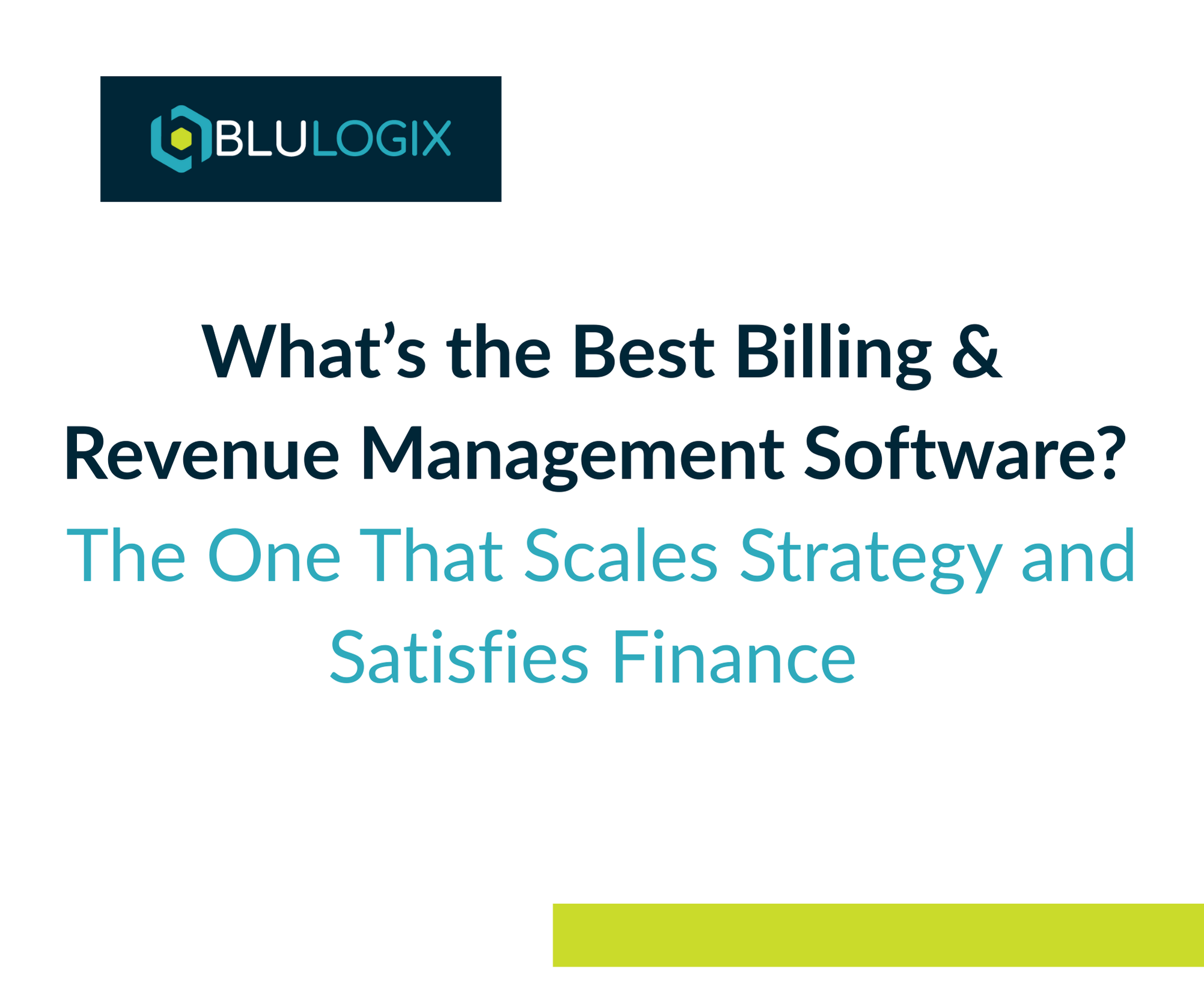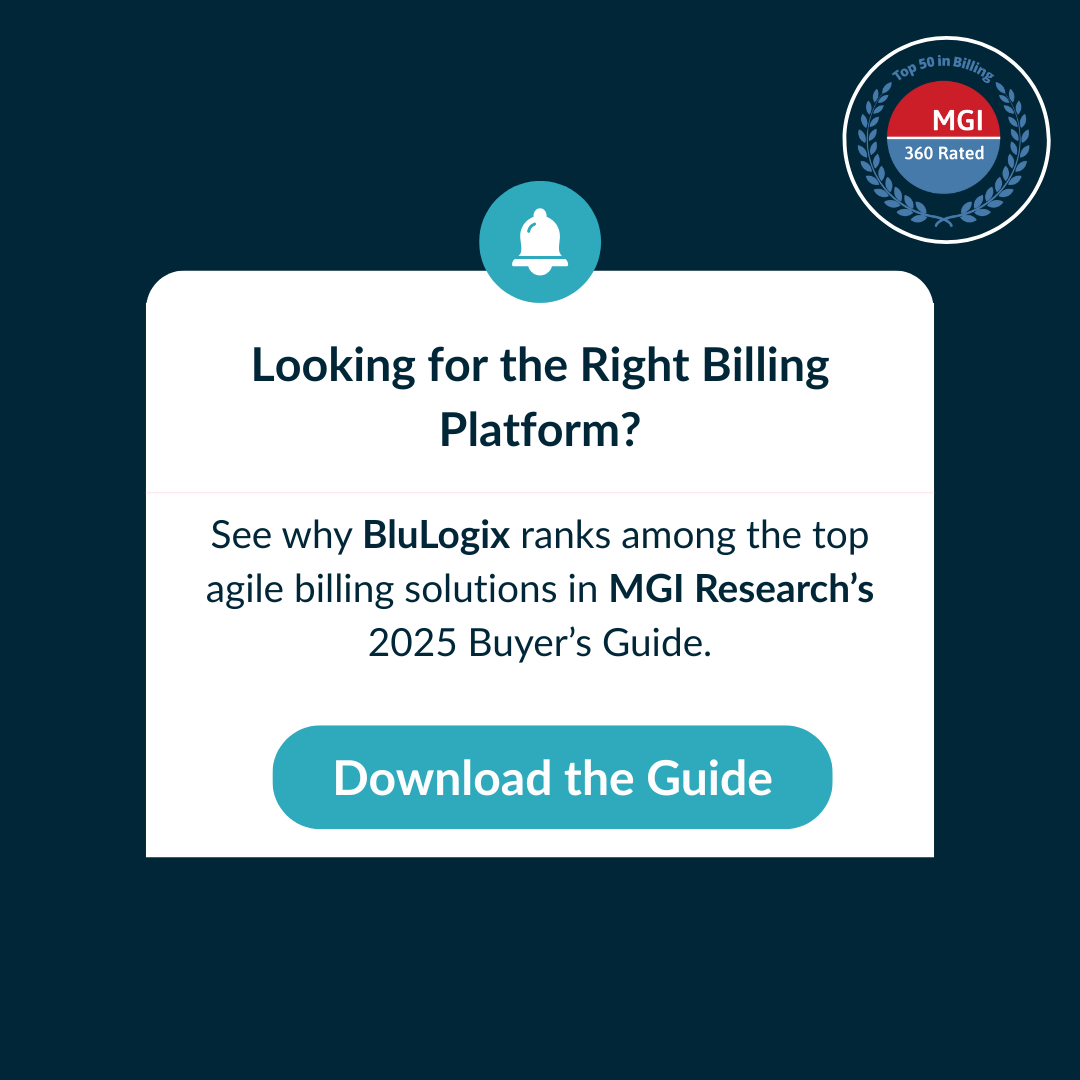Preparing for Regulatory Changes in Subscription Management
The subscription economy is thriving, with businesses worldwide adopting models that offer flexibility, scalability, and recurring revenue streams. However, as the industry grows, so does regulatory scrutiny. Increasingly stringent data privacy laws and consumer protection regulations are shaping the way companies handle subscription management and billing.
Navigating these changes requires businesses to adopt compliance-focused billing software and automated subscription management tools that ensure adherence to legal standards while maintaining operational efficiency and customer trust.
Ready to see how BluIQ can transform your billing process and help you achieve integrated, automated, and accurate complex monetization? Schedule a demo with a BluLogix billing expert today and take the first step towards revolutionizing your revenue management.
The Regulatory Landscape for Subscription Businesses
Regulations affecting subscription management are becoming more complex and globally diverse. Some of the most impactful changes include:
- Data Privacy Laws: Regulations like GDPR (General Data Protection Regulation) in Europe and CCPA (California Consumer Privacy Act) in the U.S. impose strict requirements on how businesses handle customer data.
- Consumer Protection Acts: Subscription models are under scrutiny for practices such as auto-renewals, cancellation policies, and pricing transparency.
- Global Tax Compliance: The rise of digital services has led to evolving tax laws, including VAT and GST rules, requiring precise tracking and reporting for cross-border transactions.
Challenges of Regulatory Compliance
Non-compliance with regulations can lead to significant consequences, including:
- Fines and Penalties: Regulatory bodies impose heavy fines for data breaches or failure to comply with consumer protection laws.
- Reputational Damage: Mishandling customer data or engaging in non-transparent practices can erode trust and loyalty.
- Operational Disruptions: Businesses that rely on manual processes may struggle to adapt quickly to regulatory changes.
Staying ahead of these challenges requires a proactive approach that combines technology, automation, and strategy.
How Billing Automation Supports Compliance
Billing automation is a cornerstone of regulatory readiness. By automating critical processes, businesses can:
- Ensure Data Security and Privacy
Automated billing software includes built-in security features that safeguard customer data. Encryption, access controls, and data masking protect sensitive information, reducing the risk of breaches.
- Streamline Tax Compliance
Advanced billing tools track and calculate taxes automatically, ensuring accurate invoicing across different jurisdictions. This is essential for businesses operating globally, where tax rules vary widely.
- Maintain Audit Trails
Comprehensive reporting capabilities provide detailed records of transactions, ensuring transparency and simplifying audits. Automated systems can generate compliance reports on demand, saving time and resources.
- Support Transparent Billing Practices
Automation ensures customers receive clear, itemized invoices that align with regulatory requirements. Transparent billing reduces disputes and enhances trust.
Aligning Subscription Management with Regulatory Standards
Subscription management tools play a critical role in achieving compliance while delivering an exceptional customer experience. Key capabilities include:
- Consent Management
Regulations like GDPR require businesses to obtain and manage customer consent for data usage. Subscription management platforms simplify this process by capturing and storing consent records.
- Flexible Renewal Policies
Automated subscription management allows businesses to implement and enforce customer-friendly auto-renewal and cancellation policies, reducing the risk of regulatory violations.
- Usage and Data Transparency
Metered billing and usage-based models require precise tracking and reporting. Subscription management tools provide visibility into customer usage, ensuring accurate billing and compliance with pricing regulations.
- Localization for Global Markets
Subscription platforms equipped with localization features can adapt to regional laws and customer preferences, ensuring compliance across multiple markets.
Industry Trends Amplifying the Need for Compliance
Several trends in the subscription economy are driving the urgency for regulatory readiness:
- Data-Driven Models: The integration of artificial intelligence and predictive analytics in subscription platforms requires robust data protection mechanisms to comply with privacy laws.
- Global Expansion: As subscription businesses expand internationally, navigating diverse regulatory environments becomes a critical challenge.
- Customer Advocacy: Consumers are demanding greater transparency and control over their subscriptions, prompting regulators to enforce stricter guidelines.
Best Practices for Regulatory Preparedness
To stay ahead of regulatory changes and maintain a competitive edge, businesses should:
- Invest in Advanced Billing Software: Choose solutions with built-in compliance features, such as tax calculation, data encryption, and automated reporting.
- Leverage Automation: Automate renewal management, invoicing, and consent tracking to reduce errors and streamline compliance processes.
- Stay Informed: Monitor regulatory developments in key markets and adapt your practices proactively.
- Prioritize Customer Transparency: Implement clear, customer-friendly policies that align with consumer protection laws.
The Role of Compliance in Building Trust
Compliance is more than a legal requirement—it’s a competitive differentiator. Businesses that prioritize regulatory readiness send a clear message to customers: “We value your trust and are committed to doing things the right way.”
In an era of heightened scrutiny, compliance isn’t just about avoiding fines—it’s about fostering trust and building stronger relationships with your customers. Automation and innovation are key to making this happen.
Prepare for 2025 with Smarter Tools
The regulatory environment will continue to evolve, and businesses that embrace compliance-driven automation will be better equipped to navigate these changes. By aligning subscription management and billing practices with global standards, you can reduce risks, improve efficiency, and strengthen customer loyalty.
Ready to see how BluIQ can transform your billing process and help you achieve integrated, automated, and accurate complex monetization? Schedule a demo with a BluLogix billing expert today and take the first step towards revolutionizing your revenue management.
Learn more

What’s the Best Billing & Revenue Management Software? The One That Scales Strategy and Satisfies Finance

Features That Power Complex B2B Contracts — And How BluLogix Delivers Them



